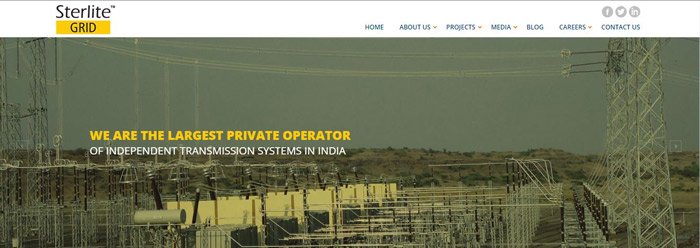
Private power transmission systems firm Sterlite Power Grid Ventures Ltd is planning to raise around Rs.2,500 crore through an infrastructure investment trust (InvIT), a person close to the development said, requesting not to be identified.
On Monday, the company filed its application with the capital markets regulator to launch the trust.
Pratik Agarwal, chief executive officer at Sterlite Power confirmed the company has filed an initial application, adding it was yet to decide on the amount of funds to be raised. Sterlite Power Grid is a unit of Sterlite Power Transmissions, which was demerged from Sterlite Technologies in May.
The company has not specified the assets that it will bunch together as part of the InvIT, but will finalize them once it files its draft red herring prospectus (DRHP), Agarwal said.
InvITs are trusts which manage income generating infrastructure assets, typically offering investors regular yields and a liquid method of investing in infrastructure projects. InvITs are expected to encourage higher foreign investment in the Indian infrastructure sector, reduce the burden on the banking system, and allow developers to unlock tied-up capital.
“We have not yet decided about the money that we are planning to raise. We will take a call based on the guidelines and discussions with our investors and bankers,” Agarwal said. He said the company has assets worth of Rs.11,000 crore, of which around Rs.5,500 crore worth of assets are operational.
“We are looking at listing our transmission assets by the third quarter of the current financial year,” Agarwal said.
Explaining the rationale behind setting up an InvIT, Agarwal said such structures are a preferred capital raising route for companies globally.
“InvIT is one of the options to raise the cheapest capital while the dividends paid to investors are totally tax-free,” he said.
Agarwal said the firm is yet to decide on how to use the money raised. Typically, international infrastructure companies use proceeds of InvIT to retire some of debt, fuel expansion and pay dividends to shareholders.
Source: LiveMint





